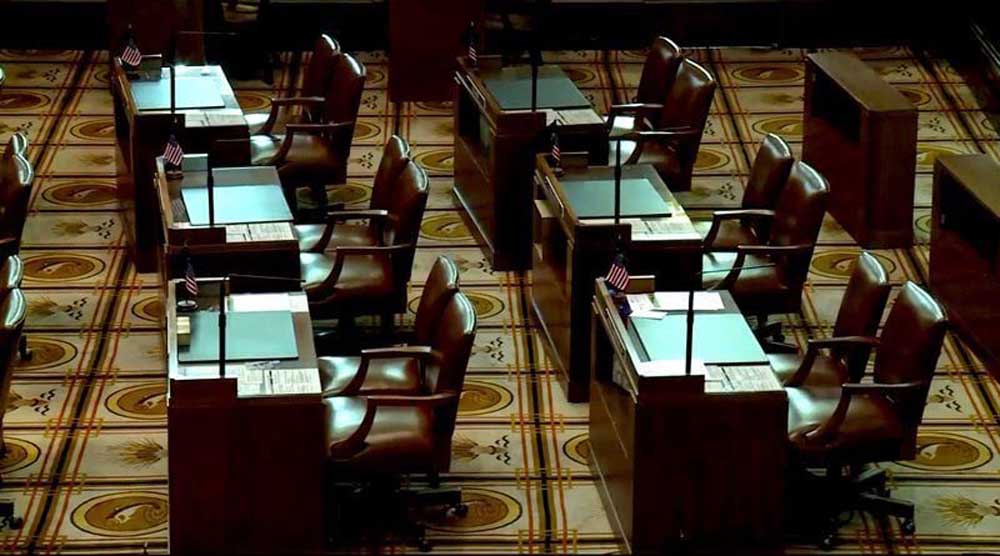As walkout ends, 10 GOP senators still face sanctions
Published 3:39 pm Monday, June 19, 2023
The Oregon Senate, having ended the longest walkout in state history, will be in a sprint as the Legislature’s 160-day session approaches its June 25 closing date.
The walkout ended June 15 after 42 days — and after majority Democrats and minority Republicans asserted victory in disputes over bills affecting abortion access and firearms regulation.
Trending
However, 10 senators are likely to have to go to court to challenge a measure under which their unexcused absences during the walkout now disqualify them from seeking reelection. Voters set a threshold of 10 such absences when they approved Measure 113 last year — and the unexcused absences remain on the books.
Now in the session’s final week, the Senate worked on reducing a backlog of 400 bills, including agency budgets, as it resumed legislative business with the House. Both chambers observed the new Juneteenth state holiday (on June 19) created two years ago. But a joint subcommittee scheduled action on Tuesday, June 20, on the final six budget-balancing bills that emerge at the close of a session — signaling the end is near.
Where GOP standsRepublicans, for their part, agreed to return and suspend Senate rules to allow fast-track consideration of bills that have piled up since May 3. That eases the way for majority Democrats to push through bills and budgets that would have died with the close of the session.
A couple of senators — Kim Thatcher of Keizer and Brian Boquist of Dallas, an independent originally elected in 2008 as a Republican — issued statements that expressed disappointment about how little they think Republicans got.
Under an earlier measure Gov. Tina Kotek signed, state agencies continue to have spending authority through Sept. 15. But most will require new two-year budgets for the cycle that starts July 1.
Senate President Rob Wagner, in a brief session with reporters, said he did not have the authority to suspend unexcused absences racked up by nine Republicans and Boquist. Under Measure 113, intended to deter walkouts during recent sessions, 10 or more unexcused absences from floor sessions disqualify members from seeking reelection. Republicans say they are prepared to go to court to challenge it.
Trending
“I think it was clear when voters passed Measure 113 that there were consequences to this sort of behavior,” Wagner said. “Obviously there are a whole bunch of legislators who are not going to be able to come back to this building. The official record is built every single day in the Legislature, so the absences are what they are — and there really is no way to go back as far as I am concerned.”
The only Senate Republicans who have not crossed that threshold are Fred Girod of Lyons, Dick Anderson of Lincoln City and David Brock Smith of Port Orford. All three are up for election in 2024, as are six of the 10 others with unexcused absences. In addition to Minority Leader Tim Knopp of Bend, Lynn Findley of Vale and Boquist, the others are Bill Hansell of Athena, who announced earlier this year he is leaving after 12 years; Dennis Linthicum of Klamath Falls, and Art Robinson of Cave Junction. The other four Republicans are up for election in 2026.
A proposed constitutional amendment (House Joint Resolution 30) was introduced in the House to lower the required number for conducting business from two-thirds to a simple majority, as it is in 45 other states. It has been referred to the House Rules Committee, but Wagner said he doubted there was enough time left for both chambers to take it up. Voters would have to approve such a change.
Oregon is only one of four states — Indiana, Tennessee and Texas are the others — where two-thirds majorities are required to conduct legislative business. Massachusetts has requirements for less than a majority; all other states require only a simple majority.










